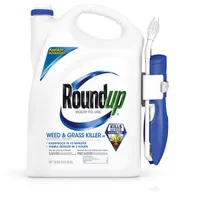When is the best time to spray weed killer? Gardening experts agree these conditions are paramount
These very specific conditions offer the best weed-killing environment, according to the pros

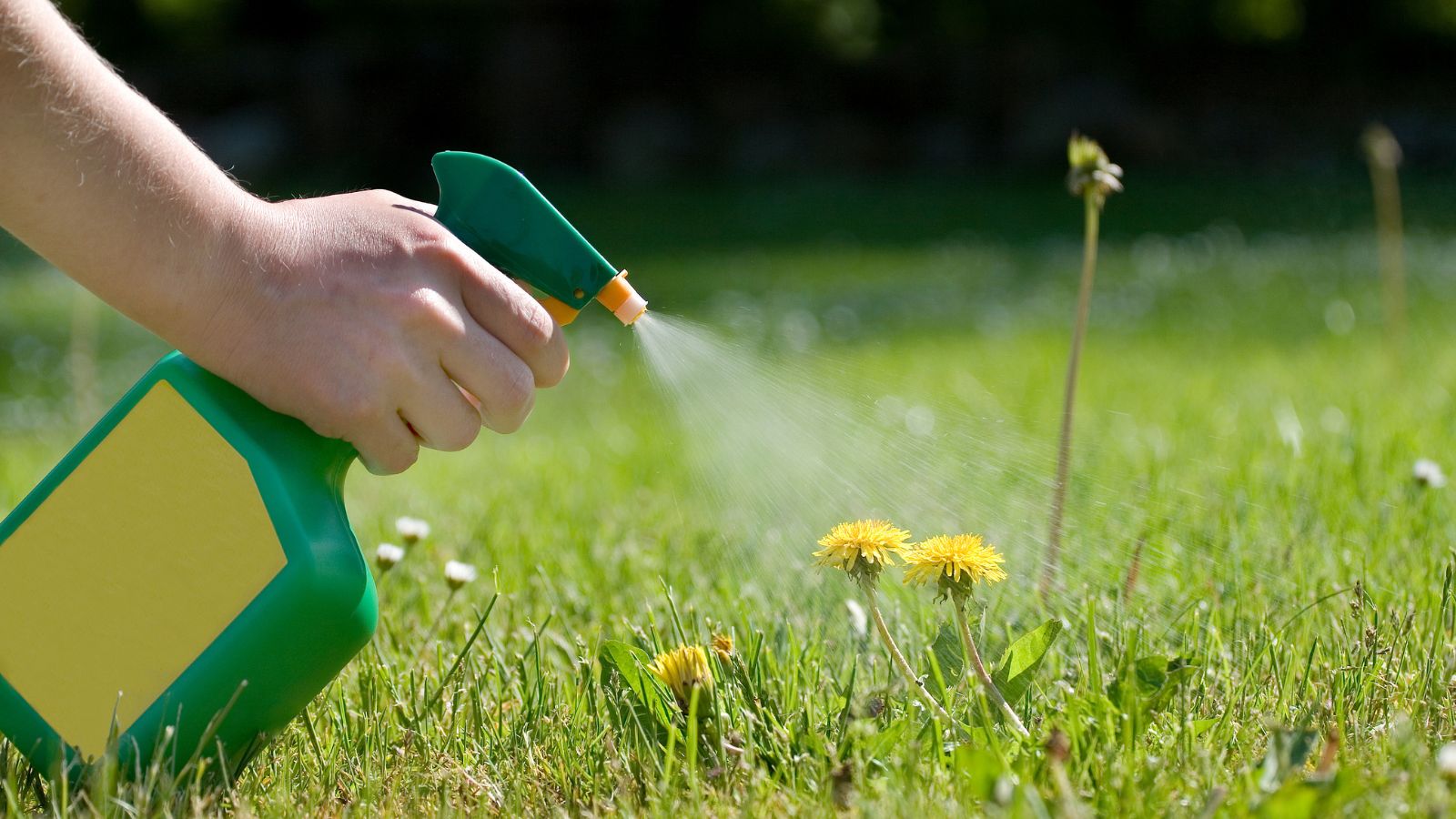
Design expertise in your inbox – from inspiring decorating ideas and beautiful celebrity homes to practical gardening advice and shopping round-ups.
You are now subscribed
Your newsletter sign-up was successful
Want to add more newsletters?

Twice a week
Homes&Gardens
The ultimate interior design resource from the world's leading experts - discover inspiring decorating ideas, color scheming know-how, garden inspiration and shopping expertise.

Once a week
In The Loop from Next In Design
Members of the Next in Design Circle will receive In the Loop, our weekly email filled with trade news, names to know and spotlight moments. Together we’re building a brighter design future.

Twice a week
Cucina
Whether you’re passionate about hosting exquisite dinners, experimenting with culinary trends, or perfecting your kitchen's design with timeless elegance and innovative functionality, this newsletter is here to inspire
Gardening takes a great deal of care and attention and we often spend ages learning the exact conditions needed to grow specific plants. But did you know that it also takes specific conditions to kill them?
As it turns out, there is a very specific time you should be spraying weed killer to get rid of weeds muddying your yard.
Here, professional gardeners have shared their advice for the best time to spray weed killers, right down to the perfect wind conditions.
The best time to spray weed killer
When you are looking to kill weeds but not plants, or kill weeds but not grass, getting the right weather conditions can make all the difference between a targeted application, and an unfortunate patch of dead plants.
‘Optimal weather conditions is a calm day with no wind or rain in the forecast,’ says Zahid Adan, a gardening expert at The Plant Bible. ‘Wind can carry the herbicide droplets to unintended areas, potentially damaging desirable plants or contaminating nearby water sources,’ he explains.
Rain, on the other hand, can reduce the effectiveness of the weed killer by washing it away, and diluting it into the soil and limiting its potency. This is particularly true if you opt to make your own weed killer, or use a natural method such as using salt to kill weeds.
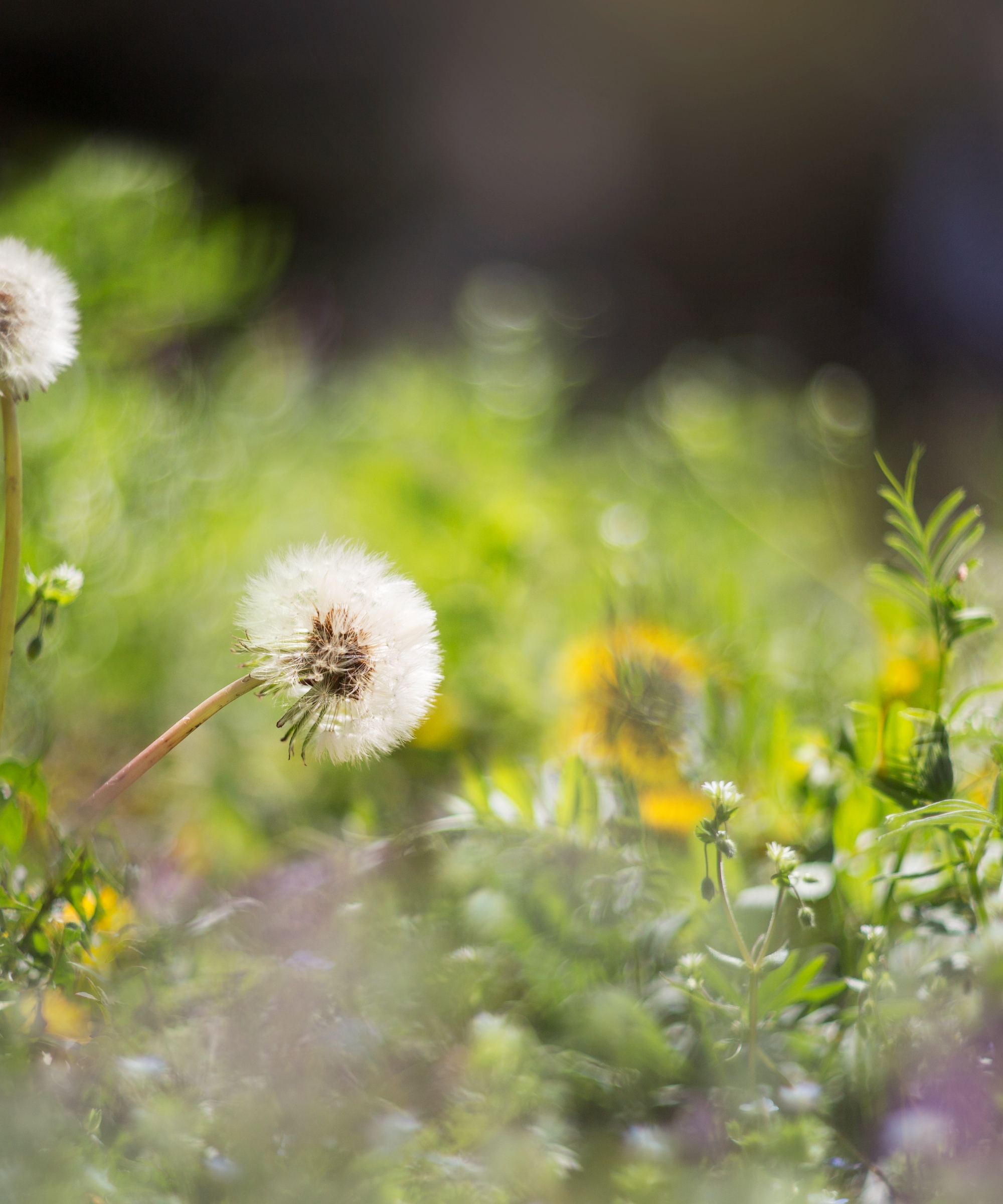
Roundup Ready-To-Use Weed Killer | $25.49 at Walmart
Roundup is one of the most commonly used weed killers for the best results. This version comes with a built-in sprayer for targeted applications.
While it may seem silly that the time affects the plant's uptake of weed killer, gardening expert and CEO of GreenPal, Bray Clayton, suggests that early morning or late evening are the golden period for weed killing.
Design expertise in your inbox – from inspiring decorating ideas and beautiful celebrity homes to practical gardening advice and shopping round-ups.
‘During these hours, the outside temperatures are more moderate, which helps to prevent weed killer from evaporating too quickly, in the midday sun (even when it feels cooler in spring and fall),’ he says. ‘This is also when winds are more likely to be calmer, preventing any drift.’
We are also less likely to be spending time in our yards at these times, so we are not exposing ourselves to any weed spray that does carry from the plants towards our seating areas.
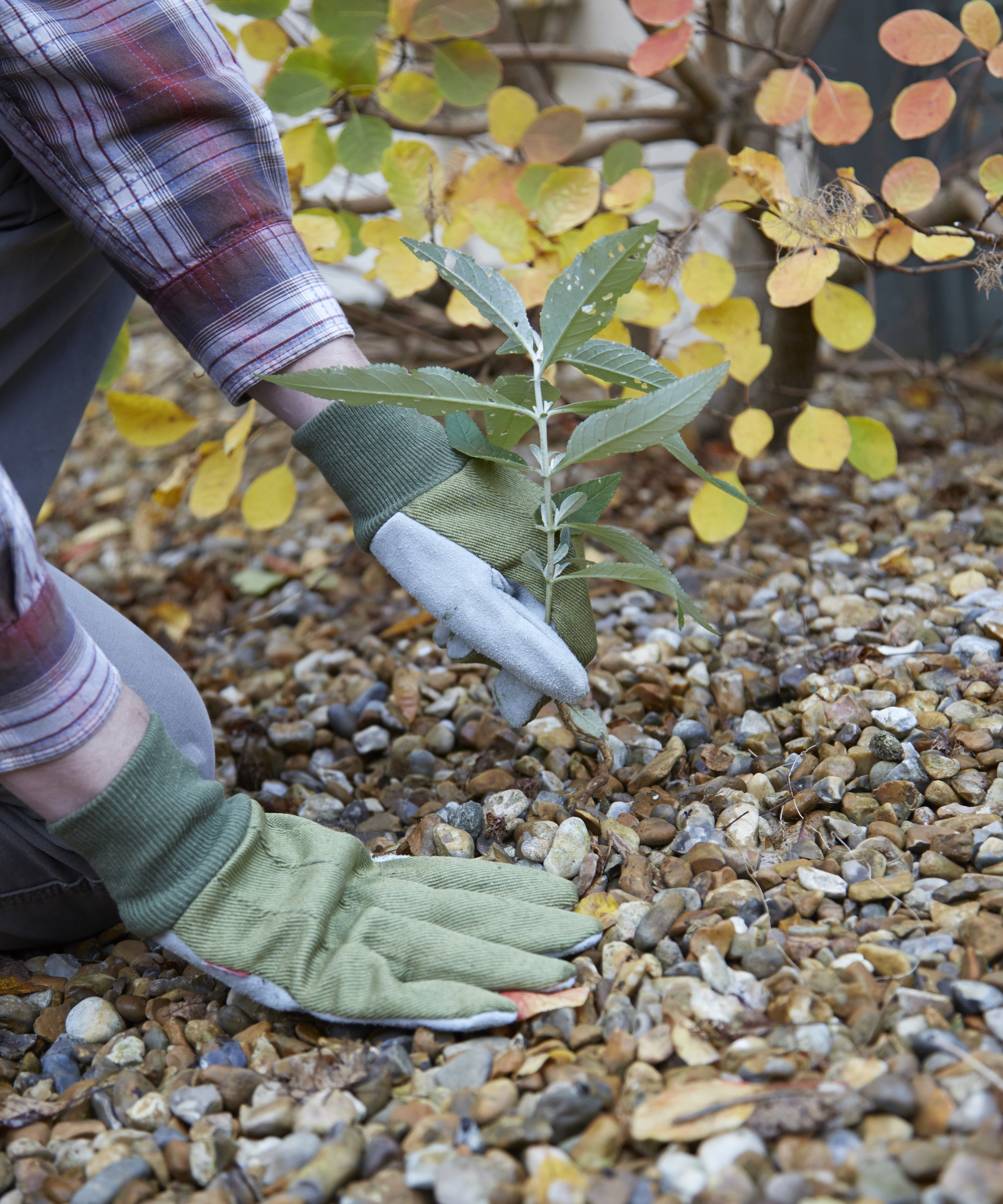
In terms of the best time of year to kill weeds, gardening experts resoundingly agree that spring or fall offer the best chance at targeting roots while they are at their weakest, and trying to tackle them in hot summers is a common weeding mistake many gardeners see.
Tim Rumball, gardening expert and former editor of Amateur Gardening magazine explains that this is a good time because most perennial plants, including weeds, ‘are drawing goodness from their foliage back down into the roots to overwinter safely. If you can get weed killers into their systems at this point it will be much more effective in killing them.’
Even in periods of little wind, it is also advisable to wear a protective facemask and gloves,’ Tim continues. ‘Use a fine spray and wet weed leaves – don’t let spray drift! You should see signs of the weeds dying back within a week. After two weeks, rake off plant debris and bin or burn it. The ground should then be safe to cultivate and plant.'
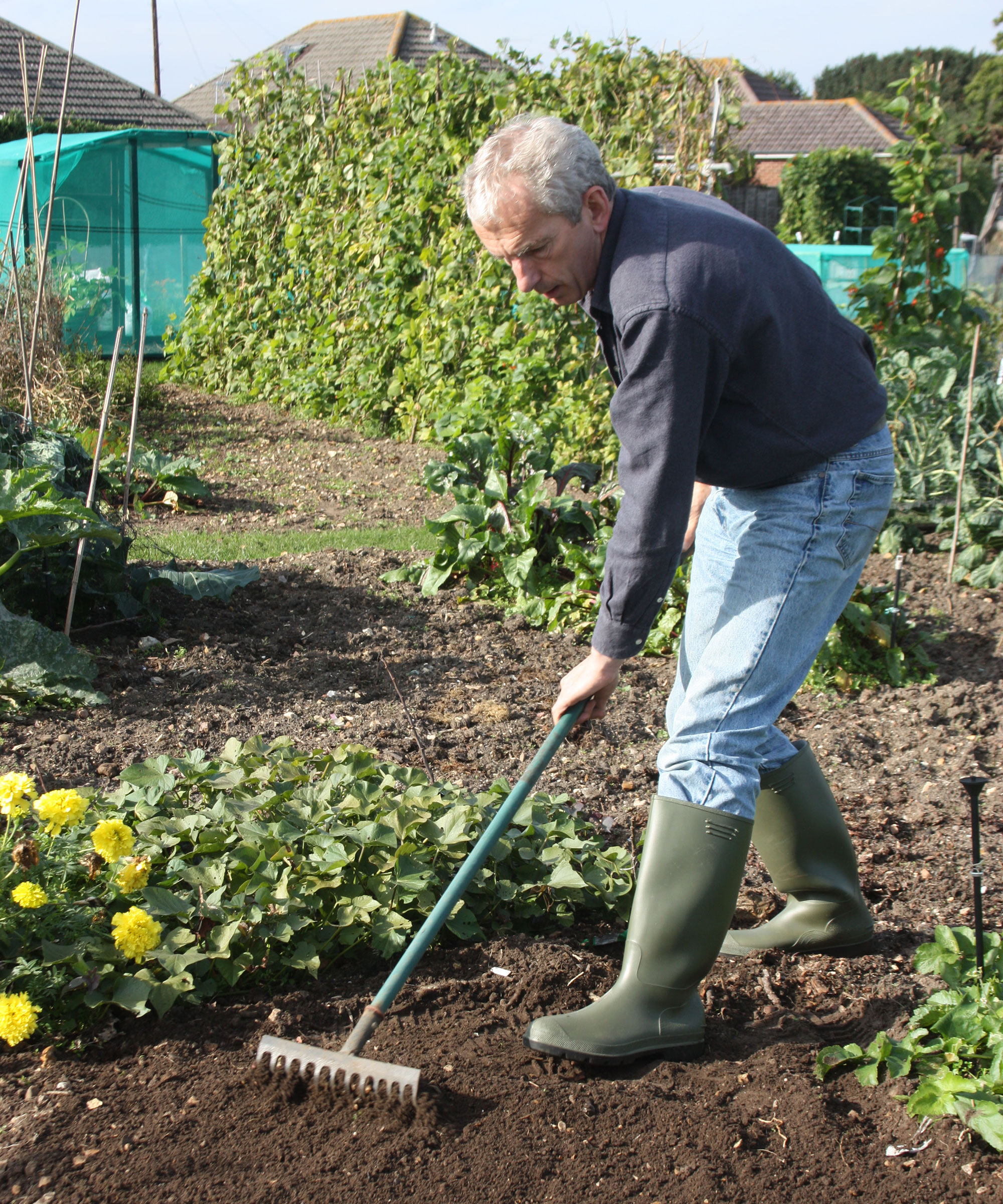
Tim Rumball was editor of Amateur Gardening magazine in the UK for 20 years. He is a keen grower of edibles and wrote a popular series called Grow, Cook and Eat. He is also known for his practical no-nonsense approach to gardening.
FAQs
When should you not spray weeds?
You should not spray weeds in high winds, as this could blow the chemicals back onto you, irritating your skin, blow it only plants you wish to keep alive, or even blow it into neighbors spaces, possibly damaging their plants or even posing a risk to pets and wildlife. Instead, spray weeds in moderate weather, with little to no wind.
What happens if you don’t remove weeds?
If you do not remove weeds, they can quickly take over your yard or garden, smothering plants you want to keep alive such as your flowers, vegetables, or grasses, and stealing nutrients from newly planted plants and seeds, preventing new growth as they return year after year.
Although it may seem easy for some of us to kill plants without this kind of planning and preparation, weeds are incredibly stubborn growers. Along with spraying weeds to kill them, consider also pulling weeds by hand for a double attack on the pesky plants, as well as using cardboard for weed control to help trap the spray against the plant and block out sunlight for a surefire attack that is bound to render positive results.

Chiana is Homes & Gardens’ kitchen appliances editor. With a lifelong passion for cooking and baking, she grew up experimenting in the kitchen every weekend with her baking-extraordinaire Mom, and has developed a great understanding of how tools and appliances can make or break your ideal relaxing kitchen routine.
